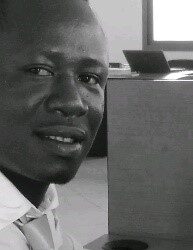By Theem Isaac Machar Akot
Kudos to Awut Deng Achuil for restoring hope where it had been lost. For years, South Sudanese have struggled to trust their leaders, with many promises remaining unfulfilled due to a lack of proper implementation.
When I first heard you speak about curbing examination malpractice last year, I had a seat of doubt. The scale of cheating had become overwhelming. But to my surprise, you turned those words into action. You have ensured that failures are not awarded undeserved results, while those who earned their grades are rightfully recognized.
This effort has brought about celebrations, despite the poor results, because the Ministry of General Education has taken a major step towards re-establishing a standard and quality education system. One key benefit of this move is that it encourages students to rely on themselves, fostering a culture of reading and learning, which had long been lost. Over the years, students have drifted from trusting their teachers and their abilities to depending heavily on cheating to achieve their academic goals.
This action has revived professional ethics and integrity within the educational system. South Sudan has been graduating students with high grades that often didn’t reflect their actual abilities. However, despite the progress made, the fight is still far behind. Some schools managed to bribe security personnel, and cheating continued, indicating that teachers remain the main source of malpractice.
As we prepare for this year’s exams, it’s clear that more needs to be done to eradicate cheating entirely. The pressure is on, and some schools are already scheming to help their students cheat.
The security personnel at various centres did not act uniformly. While some maintained their integrity and adhered to the principles of the examination, others succumbed to bribery.
Teachers also played a role in facilitating cheating by allowing students to smuggle in unauthorized materials, exemplifying the saying, “Money can talk.”
Dear Minister, for your efforts to be truly effective, it is crucial to carefully both the teachers and the security personnel. I offer these suggestions as a teacher myself, fully aware of the underlying scandals and their sources.
You may already be aware of the unhealthy competition among schools. Many private institutions are more concerned with building their reputation than with the quality of education they provide. Their focus has become more about marketing than learning. As a result, students are flocking to schools notorious for enabling cheating, creating a challenging situation for schools that have complied with the Ministry’s regulations and upheld ethical standards.
This practice is too damaging to the overall educational system, and it puts undue pressure on schools that are trying to do the right thing.
How can we put an end to this?
I propose a radical solution: all teachers should be reassigned to different schools during exam periods to strengthen the invigilation process. Another alternative is that teachers should not be allowed to participate in invigilation at all, and any teacher found near students during exams must face strict consequences. Bribery is rampant, and justice must be strengthened. Regular monitoring of the examination board security personnel at the exam centres should be a top priority.
To sum up, the root of the problem lies with the teachers. As long as they remain intact to their students, getting rid of examination malpractice will be a difficult task.
The writer is a third-year student at the University of Juba School of Education Department of English Language and Literature.



